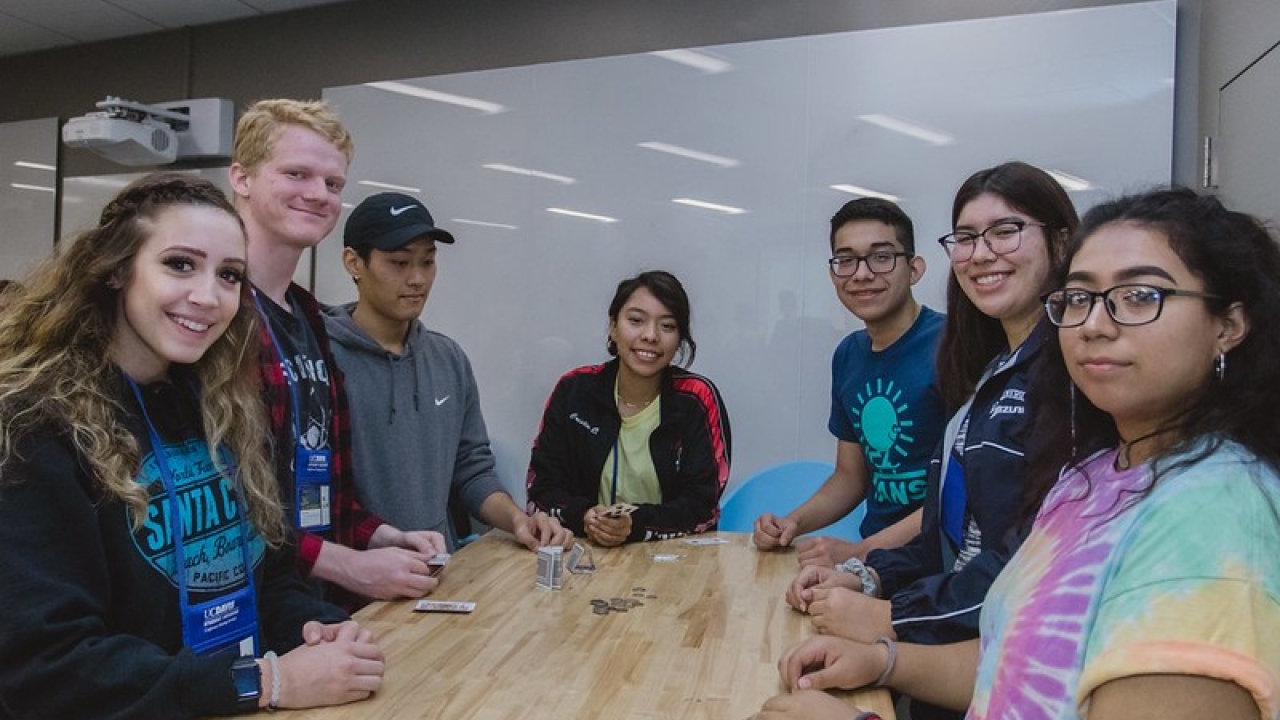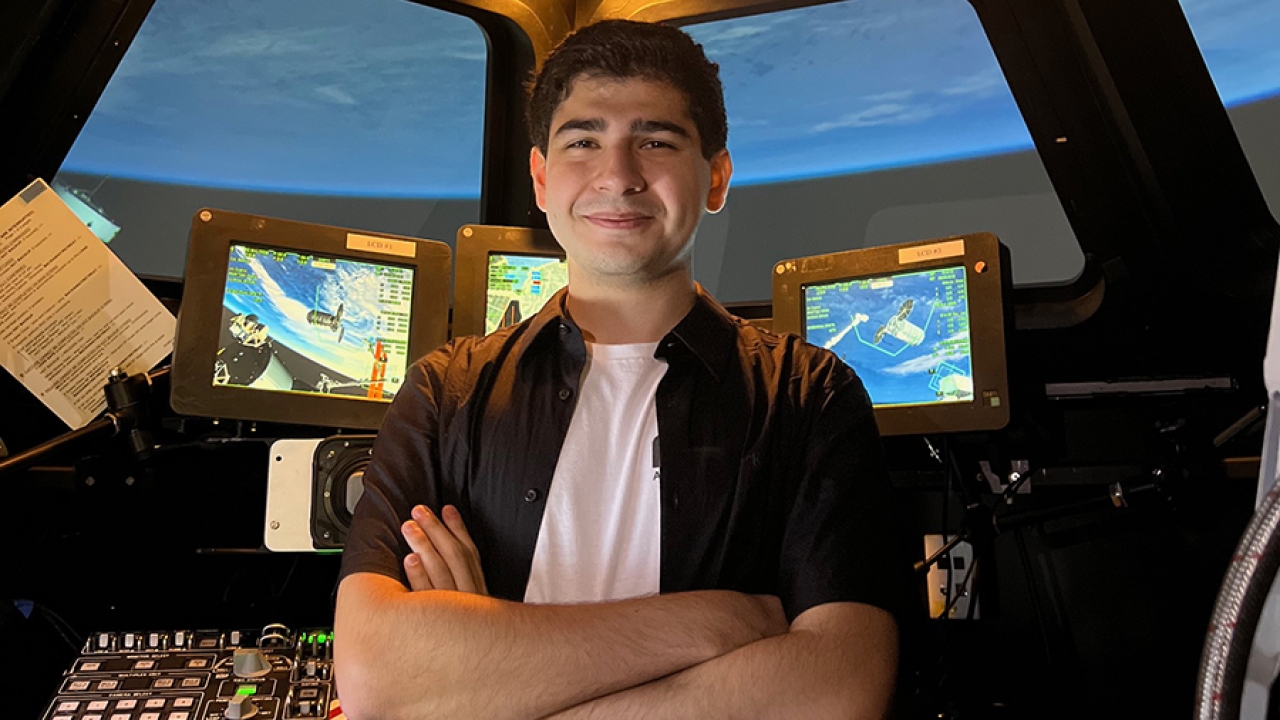
Tanya Whitlow: Increasing Diversity and First-generation Student Retention through LEADR
The Leadership in Engineering Advancement, Diversity and Retention (LEADR) program is a student support program within the College of Engineering.
LEADR’s mission is to recruit, retain and graduate a diverse population of students from the College of Engineering and to prepare students for post-graduation careers, whether it be in industry or graduate school.
The program offers advising that focuses on academics and personal growth, professional development and career readiness support. Examples include first-year engineering seminars, a living-learning community, a first-year summer bridge program and individualized tutoring and co-curricular courses provided during the academic year through the Academic Assistance and Tutoring Center, a campus partner.

Tanya Whitlow, the LEADR program’s director, initially started LEADR in 2012 to provide a support group for first-generation students.
“LEADR was created in response to the college’s desire to have a program that focused on supporting our first-generation students,” said Whitlow. “College leadership selected me to direct this program based on my previous experience working with similar programs, including Upward Bound at UC Berkeley, Success through Collaboration, Mathematics, Engineering, Science Achievement’s (MESA) American Indian Program, and MESA’s Minority Engineering Program (MEP) at UC Davis, where I served as interim director before transitioning to the College of Engineering.”
When asked to start the program, Whitlow knew that an advising foundation was important. She along with her colleagues, Kim Reinking, now retired, Alin Wakefield, the college’s research and graduate studies development coordinator, and Nancy Davis, the assistant director of advising, used a team approach to advise the first 2012 cohort.
“The plan was for students to be advised quarterly, in contrast to the once-per-year mandatory advising hold in the college. This would allow us to build rapport with students and have more touch points for checking in on how students were doing both academically and personally. In addition to advising students, weekly meetings were held with students to form a sense of community between students and staff,” said Whitlow.
The first cohort included 35 students from the Special Transitional Enrichment Program (STEP) program.
“The number of participants continued to grow and I knew that we could have a greater impact beyond the students who participated in STEP,” said Whitlow. “It also became apparent to me that to have a full-fledged program, I needed to dedicate full-time to directing and developing resources and programming, including hiring LEADR staff to manage advising, so I could concentrate on building other program components.”
The LEADR program has grown from the initial cohort of 35 students to now serving more than 300 students each year. LEADR also added a summer bridge program in 2016 and a living-learning community housed in the Tercero Housing Complex in 2017.
The LEADR Study Center was also recently renovated in 2018 to accommodate staff offices for a first- and second-year advisor, an office for the newest staff member, Ashley Pelham, who works with third-year students, and the growing number of students who use the space to study, reconnect with classmates and friends, and to hold social and community-building activities.
Whitlow believes success is something that cannot always be quantified.
“I have seen students who entered the College of Engineering with trepidation and homesickness develop into confident young adults who never cease to impress me with the wisdom they gained before attending college and developed thereafter,” said Whitlow. “I know that we tend to measure success by how many students graduate and become employed or accepted into graduate school and, of course, this is our goal but when you work first-hand with a freshman through graduation and witness their transformation into a researcher, student leader, doctoral student, or an engineering professional at Chevron, Lockheed Martin, or Cisco, you know that how they achieved this success cannot always be measured quantitatively.”
LEADR is the College of Engineering’s first program that is intrinsic to the college and focuses on diversity, first-generation students and enhancing the equity in educational outcomes.
“LEADR has strong, quantitatively measurable outcomes from efforts focused on improving first-year retention and it is now our aim to increase retention rates beyond the first year as well as graduation rates with additional retention-focused efforts made possible with our new funding from the provost,” said Whitlow.
To join LEADR, students must be the first in their families to attend college or be a part of the Educational Opportunity Program, have participated in a MESA engineering pre-college program such as Upward Bound, or a similar enrichment program, or be a student who has potential for leadership in increasing the participation of students in engineering from historically underrepresented groups. LEADR still works closely with students who participate in the STEP Program.
Each year, LEADR invites first-generation and first-year students to participate in the LEADR Summer Bridge Program or the LEADR Living-Learning Community. An invitation is sent to students who were interested but unable to participate in these pathways to join at the beginning of the quarter.
“I appreciate working with LEADR students and staff and having the opportunity to work with college and campus colleagues that I respect and who support our students,” said Whitlow. “Building LEADR has been very hard work. I also feel personally responsible for the students’ experience, so it is always very special to hear that a student stayed in engineering because of LEADR, or that they came to UC Davis because of LEADR.”
For Whitlow, running this program is “constant” and she feels that there is always more to do and innovate.
“I was used to getting to know students very well when I worked with MEP and I miss that connection with LEADR students as I’m often needing to work behind the scenes,” said Whitlow. “LEADR took off very quickly and it took some time catching up with the momentum. This is still the case, even after eight years, but I realize this is a good problem to have. I am fortunate to have great staff who love working with students.”
Whitlow says there are new challenges running the program virtually, but they were able to have their first LEADR Virtual Summer Bridge Program and are continuing working to achieve a sense of community online.
“Someone once told me that they wished I could see a ‘web’ of the impact on all of the students we work with – how the students are making differences in their families, communities and industry even though we may never get to see these results. That’s what excites me about programs like LEADR – the longer-term impact that we may never see but is, nevertheless, real.”




